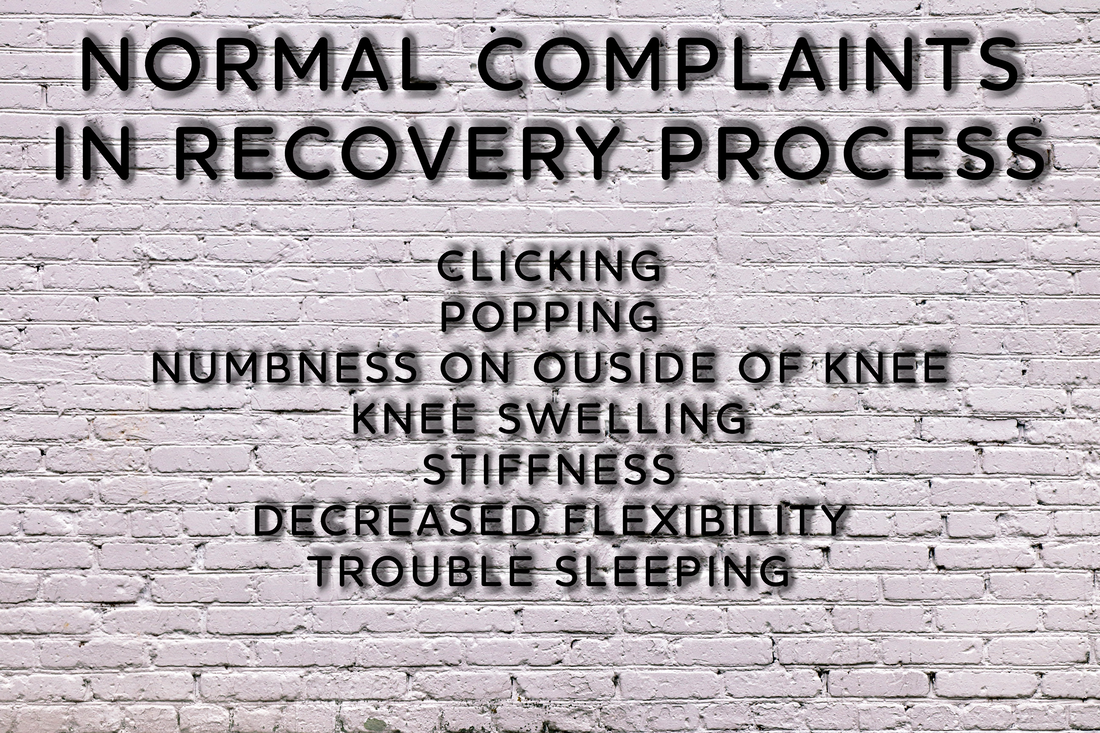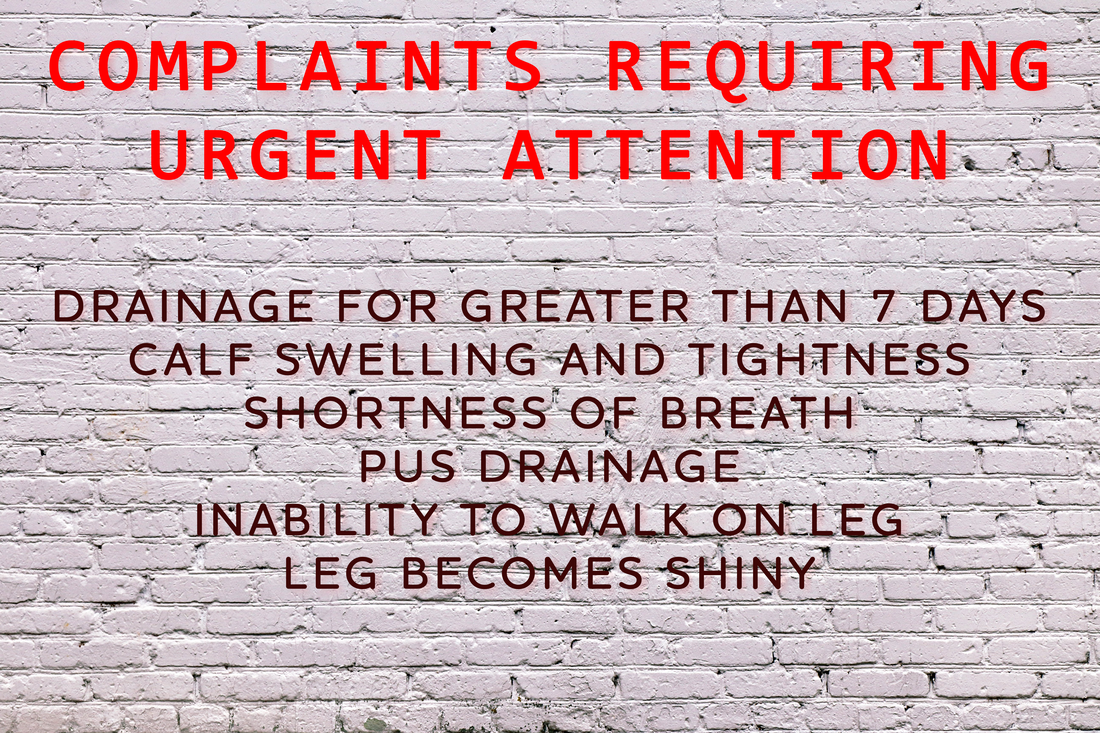The Fast-Track Knee Replacement Recovery Program, Exclusively at Atlanta Bone and Joint Specialists
|
With tens of thousands of knee replacements having been performed at Atlanta Bone and Joint Specialists, our surgeons are some of the most talented and high volume in the city of Atlanta and the surrounding area. With a wealth of expertise, we've decided to share our experiences with our patients to help them recover faster with more resources to help them get through their knee replacement surgery. Unfortunately, we can't give away all the secrets but we will give you a preview of what to expect after so that you have a better understanding of what to expect. Expectations are one of the keys to success after knee replacement surgery.
|
The History of Knee Replacement Recovery
|
Prior to our fast-track programs, total knee replacement surgery was a timely process from prior to surgery with extended stays in the hospitals. Early in the era of knee replacements over 30 years ago, patients were admitted to the hospital prior to surgery and "medically optimized" for surgery. They would routinely stay for greater than 5 days and go to inpatient rehabilitation.
Insurances have since cut short some of these times by reducing payments to hospitals and encouraged surgeons to reduce their length of stay in the hospital and the orthopedic surgeons had to adjust. Rather than sit back, our specialists advanced into the same-day go home total knee replacement and extended recovery (23 hour stay) protocols that are the mainstay of our practice today. As of March 2020 and as COVID-19 pandemic developed in the United States, we listened to our patients who needed joint replacements but did not want to recover in the hospital setting. We shifted our practice from routinely keeping patients overnight to nearly exclusively outpatient total joint replacement. We now want to share our experiences with you, our patients, to help you recover safer, faster and with the comfort of mind knowing that we have listened to our patients and are using their experiences with the recovery process to guide you in your recovery! |
Expectations. Expectations. Expectations.
|
As we begin our journey into knee replacements, it is imperative to define expectations prior to surgery. Our surgeons frequently hear how they want to have no pain, fly over the Atlantic ocean to visit Paris and London the week after surgery and, yes, we've heard it before, run a marathon 2 weeks later.
So when we hear these expectations prior to surgery, we know we need to set the expectations correctly so you can understand your expected pain levels, your travel (by car and/or air), and your ability to run marathons- a little bit longer than that 2 week window our most ambitious patients ask for. Many patients do experience significant relief early on, however, it is not uncommon to regress along the way. Physical therapy will be there as will our physicians, but a clear understanding that the set backs encountered are common can be disheartening. Do not fear, the saying two steps forward one step back is the case in some situations, but it is key to remember that long term you are moving forward to a successful outcome. |
Pain After Knee Replacement Surgery
The pain after knee replacement is highly variable. In our experience we like to go with percentages rather than pain scores. It is important to look at pain as a function of time, as well as the different types of pain you may experience.
The first few days after surgery are the worst, with patients frequently reporting pain that keeps them from sleeping and inability to be comfortable. This is usally due to the swelling and the surgery itself as the body sets off a cascade of inflammatory events after a surgery is done. We typically see a reduction in the most severe pain just after the 1 week mark.
We will look for pain that lessens on a weekly basis at followup appointments, and by 1 month we expect your pain level from the surgery to be reduced by around 50%. 50% means that half the day is with minimal pain and half the day is uncomfortable.
As therapy really begins to focus on range of motion in this first month, it is highly likely that therapy will exacerbate the pain. However, most patients report that even though the therapy hurts during the session and after for 24-48 hours, they see large benefits in their pain levels after each sessions recovery period is over.
By 3 months, our expectation in that 75% of the pain will be reduced and functionally you will be making huge improvements
The first few days after surgery are the worst, with patients frequently reporting pain that keeps them from sleeping and inability to be comfortable. This is usally due to the swelling and the surgery itself as the body sets off a cascade of inflammatory events after a surgery is done. We typically see a reduction in the most severe pain just after the 1 week mark.
We will look for pain that lessens on a weekly basis at followup appointments, and by 1 month we expect your pain level from the surgery to be reduced by around 50%. 50% means that half the day is with minimal pain and half the day is uncomfortable.
As therapy really begins to focus on range of motion in this first month, it is highly likely that therapy will exacerbate the pain. However, most patients report that even though the therapy hurts during the session and after for 24-48 hours, they see large benefits in their pain levels after each sessions recovery period is over.
By 3 months, our expectation in that 75% of the pain will be reduced and functionally you will be making huge improvements
Normal and Abnormal Complaints Early In the Recovery Process After Knee Replacement
Risk Factors For Prolonged Pain After Surgery
|
Activity List with Likely Return to Activity
|
Pain Management After Knee Replacement Surgery
As the Drug Enforcement Agency (DEA) has asked all physicians to cut back on narcotic use, Atlanta Bone and Joint applauded their efforts and has ensured we have every measure in place to stop narctoic usage as quickly as possible. Realistically, over 90% of patients will likely need narcotics for a short period after their surgery.
However, Atlanta Bone and Joint has a strict policy of no narcotic use after 3 months after surgery under any circumstance. We have found that almost all of our patients are off narcotic pain medication in just 1-3 weeks, given the proper counseling prior as well as using other non-narcotic options to reduce pain and decrease narcotic usage. WE WILL NOT BE PART OF THE NARCOTIC PROBLEM THAT TROUBLES THE COUNTRY . WE ARE PART OF THE SOLUTION ...and we never hesitate to take pride in our work to be national leaders in the decrease usage of narcotics. |
Non-Narcotic Treatments For Pain After Knee Replacement
|
Office HoursMon-Fri: 9AM-5PM
|
Telephone |
High School Football Season Added Coverage HoursSaturdays During High School Football Season
Injury Clinic is for INJURED PLAYERS ONLY. Snellville ONLY. 9AM-10AM MEDIA ROOM |






